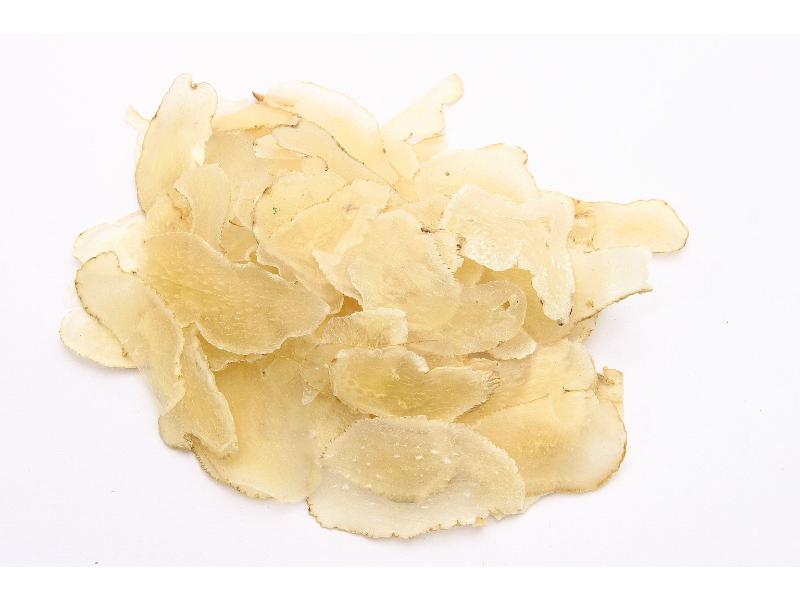Search in medicinals
Gastrodiae Rhizoma
Gastrodia [root]
天麻 〔天麻〕 tiān má

Alternate Chinese names: 鬼督邮 guǐ dū yóu; 水洋芋 shuǐ yáng yù; 冬彭 dōng péng; 赤箭 chì jiàn; 明天麻 míng tiān má
Kingdom: Plant
Origin in PRC Pharmacopoeia: Gastrodia elata Bl. (PRC Pharmacopoeia)
Origin in unofficial sources: Gastrodia elata Bl.
Use: Medicinal
Category: Liver-calming wind-extinguishing agents / Wind-extinguishing tetany-relieving agents
Properties: Sweet; balanced.
Channel entry: Liver channels.
Actions and indications:
- Extinguishes wind and checks tetany: Convulsions due to liver wind stirring internally.
- Calms liver yáng: Dizziness and headache.
- Dispels wind and frees the network vessels, and relieves pain: Paralysis, numbness and tingling, or spasm of the limbs due wind striking the channels and network vessels; wind-damp impediment (fēng shī bì) pain.
Dosage and method: Oral: Decoct 4.5–9g in decoctions; or use in powders of pills.
Product description: This is an oval rhizome, 7–10 cm long and 2–3 cm in diameter. At one end are the remains of the stem. The exterior is pale brown in color, and slightly translucent, with irregular wrinkles due to shrinkage. It is hard and horny and not easily broken. If crushed, it breaks into pieces that reveal the glossy dark brown interior. The decocting pieces are extremely fine semitranslucent slices, on which vascular bundles appear as speckles or streaks.
Quality: The best quality cuts into clear bright slices.
Production area: Yúnnán, Sìchuān, Guìzhōu.
Etymology: The original name chì jiàn 赤箭, red arrow,
describes the stem of the plant. The standard modern name tiān má 天麻, heaven hemp,
may represent a directional image if heaven
is taken to mean heavenward.